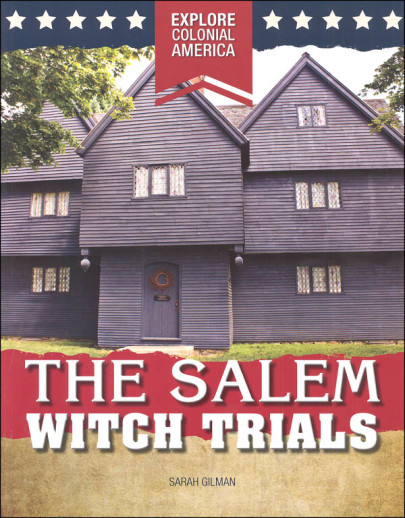We use cookies to make your experience better. To comply with the new e-Privacy directive, we need to ask for your consent to set the cookies. Learn more.
Salem Witch Trials (Explore Colonial America)
This book carefully narrates the course of events when accusation went rampant. The events are relayed in a fairly neutral tone. The author also speculates on multiple reasons for the witchcraft accusations, including disease, jealous people, boredom, and fear of local natives.
Students will be fascinated by the events that transpired in seventeenth-century colonial Massachusetts, when a group of young girls accused several townspeople of witchcraft. Through colorful images and riveting text, this "truth is stranger than fiction" story will teach young readers much about the religious and cultural state of colonial New England, as well as the dangers of groupthink.
Learn key history concepts and themes with these accessible readers. Easily read text (10 pt. font) is adorned with paintings and photos of original documents and maps. Multiple, short chapters allow for focused attention, and I appreciate the text's engaging, yet factual presentation (with no presupposed biases). Choose from focused themes like the Boston Tea Party or Ben Franklin, to overall themes. Includes a written timeline, glossary with definitions, suggested further reading, web links, and an index. Approximately Grade 5 reading level. 7 ¼"x 9 1/4". 48 pgs, hc. ~ Ruth


This was the only resource I could locate on Salem Witch Trials that seemed appropriate for a young teenager.